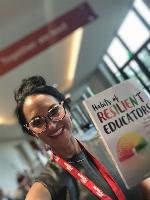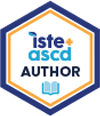

Event Information
15 minutes: Introductions, learning intentions. Develop a "Best Self" vision & SWOT analysis of journey towards it. Describe research on impact of habits, connect to SWOT.
10 minutes: Examine purpose as a journey. Draw connections between purpose, educator well-being, and resilience. Learn and practice strategies for the habit of returning to your “why” throughout daily and long-range work as an educator.
10 minutes: examine the habit of establishing and upholding high expectations for all students, across all areas of teaching. Explore biases and academic identities that influence teaching practice as well as student learning experiences.
10 minutes: Examine the connection between prioritization skills and teacher agency. Recognize common challenges (initiative overload, lack of positional authority), root causes, and indicators. Learn and practice responsive prioritization strategies.
10 minutes: Identify root causes of negative influences. Learn skills for navigating causes effectively (norms, communication skills, sharing responsibility for student learning, etc.).
5 minutes: Review connections between habits, resilience, and self-efficacy. Revisit Best Self and SWOT analysis, update with application strategies connected to habits, share with colleagues. Closing reflections.
Teachers are more likely to experience high self-efficacy when they routinely practice self-regulation strategies such as seeking help or support, setting goals, and orienting their work towards mastery, or engaging in personal learning (Zee & Koomen, 2016). Teacher self-efficacy may have a reciprocal effect on both teachers’ and students’ feelings of well-being and personal accomplishment (Bandura, 1997; Goddard et al., 2004). Together, resilience and efficacy contribute to one's comprehensive bank of psychological capital, a contemporary term for a collection of skills that research suggests can be proactively developed to nurture thriving, happy individuals and organizations (Avey et al., 2011).


